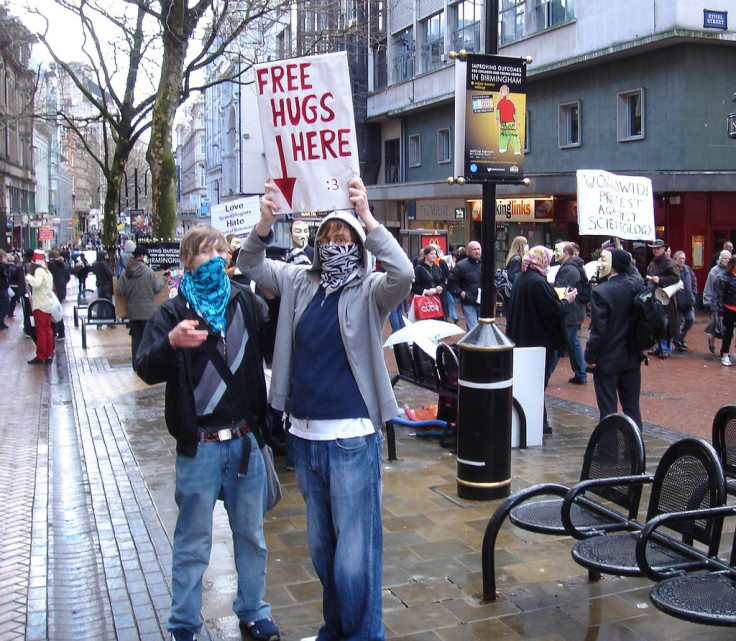Free Hugs All Around? How Hugging Can Cut Blood Pressure, Boost Wellbeing and Enhance Memory

Hugging may be the ultimate antidote in reducing stress, fear and anxiety, according to a new study that found that hugging someone lowers blood pressure, boosts wellbeing and enhances memory performance.
However, there's a catch. According to researchers, the power of hugs only works when hugged by someone a person knows very well, whereas hugging a stranger can have the opposite effect.
Researchers said that the positive effects of hugs from people we know well are caused by the body's secretion of the peptide oxytocin.
The "cuddle hormone" oxytocin is a produced in the pituitary gland, and is primarly known for increasing bonding, social behavior and closeness between parents, children and couples. Past studies have found increased oxytocin levels in partners in functional relationships. Oxytocin, also called the "love hormone", is also produced during the childbirth process and during breastfeeding to increase the mother's bond with the baby.
"The positive effect only occurs, however, if the people trust each other, if the associated feelings are present mutually and if the corresponding signals are sent out," neurophysiologist Jürgen Sandkühler, Head of the Centre for Brain Research at the Medical University of Vienna, said in a statement. "If people do not know each other, or if the hug is not desired by both parties, its effects are lost."
Researchers said that no matter how long or how often someone hugs, trust is the most important thing in determining whether the hug will produce positive benefits.
Researchers said that once the trust is there, boosts in oxytocin levels could be achieved simply as a result of exposure to emphatic behavior.
"Studies have shown that children whose mothers have been given extra oxytocin have higher levels of the hormone themselves, i.e. solely as a result of the mother's behavior," Sandkühler said.
Researchers noted that when people receive unwanted hugs from strangers or even people we know, the hormone oxytocin is not released.
In fact, unwanted hugs can give us stress because our "normal distance-keeping behavior is disregarded," Sandkühler said. He said that in these situations, people secrete the stress hormone cortisol.
In light of the upcoming "National Hug Day" on Jan. 21, researchers said that the campaign would only have a beneficial effect "if everyone involved is clear that it is just a harmless bit of fun."
Sandkühler said that otherwise, the national hug day could be perceived as an emotional burden and stress.
"Everyone is familiar with such feelings from our everyday lives, for example, if someone we don't know comes too close to us for no apparent reason," he explained. "This violation of our normal distance-keeping behavior is then generally perceived as disconcerting or even as threatening."
Published by Medicaldaily.com



























